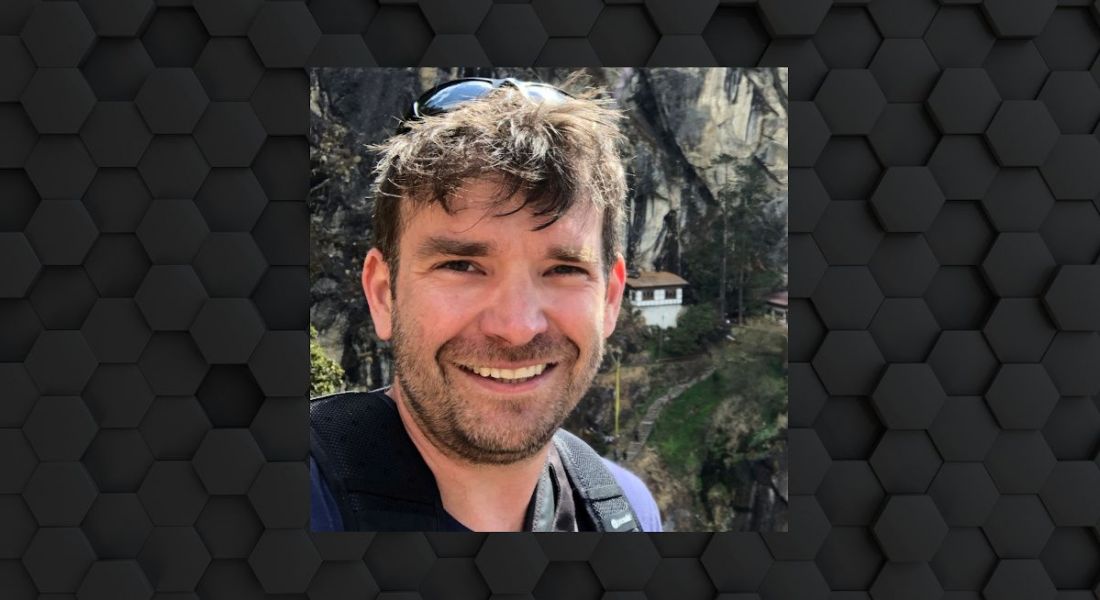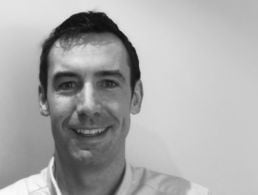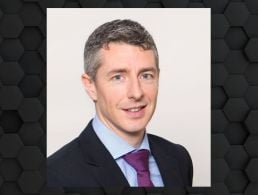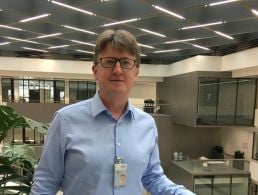MSD’s Matt Kessler discusses his career in pharma and why mentorship has been so important throughout his journey.
A career in the life sciences sector can be incredibly rewarding for many reasons. For Matt Kessler, he was always curious about immunology, having grown up with severe allergies.
That curiosity grew into a lifelong interest in how things worked and led him to his college degree in chemical engineering.
Now, Kessler is passionate about the role chemical engineering plays in pharma and biotechnology and works as a senior director in enabling technology and engineering at pharma company MSD.
What’s the best thing about working in pharma?
My favourite thing about working in our field is the way we harness innovation, collaboration and creative thinking every day to advance pioneering treatments for patients around the world. It’s hugely rewarding when you think about the impact our work can have, and that feeling is what drives you to go above and beyond at work every single day.
I first joined MSD 20 years ago, and the sense of commitment and fascination I had on that first day has stayed with me since the start. Innovating with purpose is a part of our culture at MSD, and this is visible at every level of our business.
One of the things that I enjoy most about my years at MSD is the emphasis on learning for life. I have never felt that I need to leave in order to continue my career development because I can move so easily to different roles with different skillsets within the organisation. This agility and ‘always learning’ attitude is part of our culture.
What’s the most exciting development you’ve witnessed in your sector since you started working in it?
The growth in technology and its role in what we can achieve. When I started working, most activities were done manually and on paper and analysing data was a time-consuming affair. Now we are moving towards fully automated processes, with artificial intelligence and machine learning to drive productivity and better understand interdependencies.
In my role as senior director, enabling technology and engineering, I am currently leading a diverse set of teams across Ireland and Europe to build the next big thing in biologics innovation and acceleration: the BioNX facility at MSD Dunboyne in Co Meath.
Unique within our global network, this state-of-the-art facility will leverage the most cutting-edge technology and processes to support an innovative new approach to developing and launching MSD’s future biologics medicines.
The BioNX facility at MSD Dunboyne will play a huge role in this going forward, helping to support the needs of patients globally, from MSD Ireland to the world.
What aspect of your job did you struggle to get to grips with?
One thing I’ve had to learn throughout my career is that perfect is the enemy of good. There is no one right answer in this field, just different approaches.
Understanding when something is good enough, and its relative impact, has been one of the hardest lessons to learn and one that I see proven time and again through new experiences and challenges as I continue to progress in my career.
What’s been the hardest thing you’ve had to face in your career?
One of the biggest challenges I’ve faced in my career is also one of the things I love most about it, and that is the constant evolution of chemistry and biotechnology to meet global healthcare demands.
Our work grows and changes with the world of patient care, and while it is incredibly rewarding to know that through inventing for life at MSD, we’re having a direct impact on lives around the world, it is also a responsibility with great weight. It is work that requires your ways of working, your outlook and your ingenuity to remain agile and nimble.
If you had the power to change anything within the STEM sector, what would that be?
As a sector, I think we need to move away from certain ways of working that we may have outgrown. For example, at MSD we’re trying to move increasingly towards a horizontal way of working, where we care about and cherish the unique set of skills and knowledge each person brings to the table. We are open-minded, transparent and try to create a comfortable environment where everybody can bring their truest selves to work every day.
I believe the more we bring these principles to the forefront as an industry, the more we will be able to continue enabling and supporting efforts around diversity and inclusion, making sure all voices are represented equally no matter their background, gender, age or anything else.
Working closely with the MSD Dunboyne team, I can testify that these principles ring true all throughout the site, particularly thanks to their innovative ‘flow to the work’ structure and agile working model. From the Dunboyne site, the new BioNX facility will also leverage this innovative approach to help build a workplace that is truly future-proofed in all regards, both for staff and for the people who rely on our products.
Which of your personality traits makes you best suited to your job and this sector?
If I had to think about my own personality, I would say motivation, curiosity and an interest in shaping my own future. I think the most important thing for me has been having the interest to learn, the curiosity and the knowledge to do something about it.
Is there something in your personal life that helps you in your job?
I enjoy travelling, especially off the beaten path and it has brought me very worthwhile experiences, both positive and negative. Traveling to central Africa, I had dislocated my shoulder white water rafting, and less than two days later, had almost all my belongings (including my passport) stolen.
Challenges such as that one, have helped me become a better problem-solver and engrained in me the importance of tackling issues calmly. I also believe travelling and seeing different parts of the world helps to keep things in perspective, understand global healthcare challenges better and underlines why our mission at MSD is so important.
How do you make connections with others in the STEM community?
I love Reddit or community forums. It’s a fantastic way to stay in touch and keep up to date with what’s going on in our sector among people with similar interests. I would often stay in contact with peers and friends via email, which is particularly handy when, like me, your career has taken you to several different countries around the world.
Conferences are also often a great way to meet like-minded people, and if you’re a speaker I would always recommend making your contact details available afterwards so people can reach out to you with comments or questions. I’ve made some great connections in that way.
I know networking and making connections has become a lot more challenging with Covid-19, but we’re lucky to have so many tools and platforms to be able to establish bridges with our peers and colleagues and keep up to date on what’s going on elsewhere in the industry – which is always so important.
Has mentorship or coaching been important in your career?
Mentorship has been a critical aspect in my career. Too often we are all talking about the same things but getting different meaning. There have been several mentors throughout my career who have supported me at different stages, helping me better understand some of the unspoken expectations and helped talk through difficult situations.
As I progress in my career, I hope now as a team leader I’m able to provide mentorship to others too and help share some of the learnings and knowledge I’ve acquired over the last 20 years.
What advice would you give to someone thinking about a career in pharma?
I suppose my main advice would be to always keep an eye on the horizon and pursue the opportunities that seem the most exciting to you in terms of both your career path and the impact your work can have for others.
Don’t miss out on the knowledge you need to succeed. Sign up for the Daily Brief, Silicon Republic’s digest of need-to-know sci-tech news.




